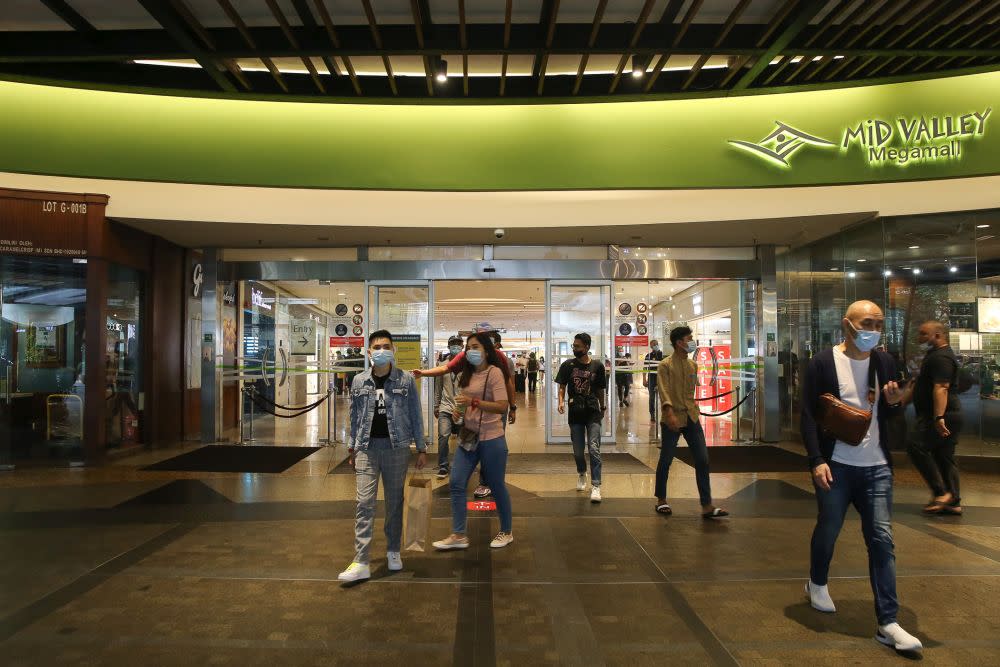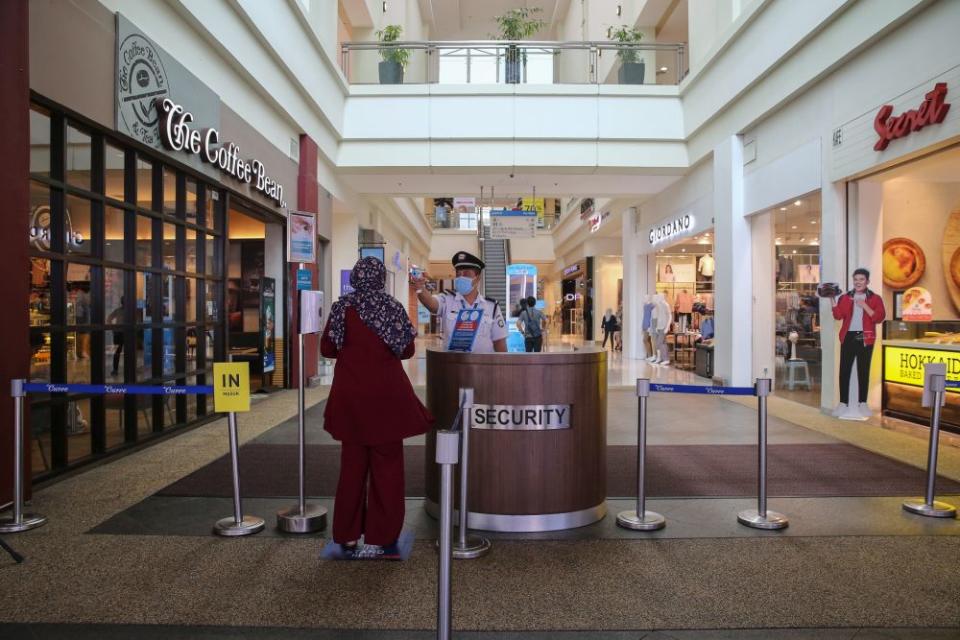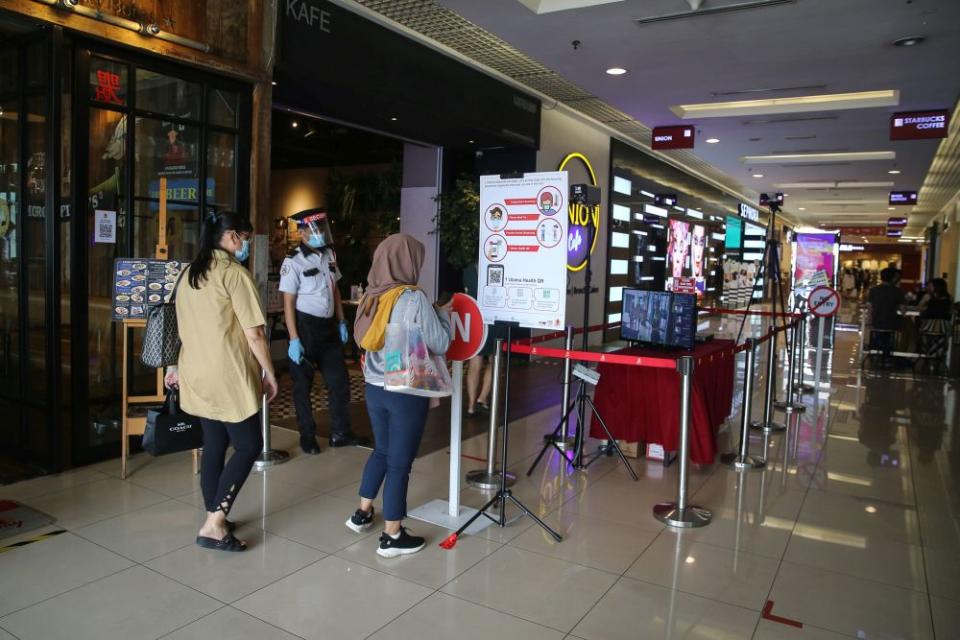Experts: Commercial property sector needs reinvention to survive impending recession from Covid-19

KUALA LUMPUR, June 2 — With prospects for commercial space appearing dim so long as Covid-19 pandemic is unresolved, property experts said diversification and creative solutions were needed for the sector to remain viable.
Both the office and shopping retail spaces were already in oversupply even before the health and economic crises hit, with the National Property Information Centre (NAPIC) reporting an excess of 24.7 per cent in commercial property space last year.
Knight Frank Malaysia Corporate Services executive director Teh Young Khean said that based on lessons gleaned from the Asian Financial Crisis in 1997 and 1998, it would take some time for the retail and office space property sector to recover.
“If the knock-on effects of the MCO and the pandemic are anywhere close to the Asian Financial Crisis (AFC) in 1997/8, historically, prime office rents in the Golden Triangle declined by about 15 per cent post-AFC as tracked by the National Property Information Centre (NAPIC),” he said.
He added that while the market did recover eventually, it remained to be seen if the same revival would take place this time around given that there was already a prevailing glut prior to the pandemic and movement control order (MCO).
Teh said leasing activity has slowed immensely since the start of the MCO as real estate plans have either been delayed or cancelled altogether as businesses rapidly moved to cut costs and preserve their cash flow.
Even buildings with existing tenants were also unlikely to escape unscathed, Teh said when noting that firms could relocate or consolidate to reduce their fixed expenses.
“The negative impact of the pandemic on business operations may prompt companies to consider downsizing, closing down non-profitable branches or exercising their contraction rights to reduce occupational costs, if available.
“This could potentially lead to a dip in the overall occupancy, especially as companies look to avoid non-essential capital expenditure until the market recovers. Subdued demand for physical work space is expected to further dampen the office market, which has already been struggling amid the supply-demand imbalance,” he said.
However, not all industries were equally affected by the pandemic as businesses related to e-commerce, hygiene and healthcare, insurance, technology and business process outsourcing are projected to grow in coming years.

Knight Frank Malaysia’s associate director of Retail Consultancy and Leasing Ben Ooi said that landlords of shopping malls have been supportive during these tough times, with some 38 malls reportedly giving rent relief to their tenants for phases one and two of the MCO.
“As retail is one of the worst hit sectors, this will help retailers cushion the short-term impact of the Covid-19 pandemic. Some malls are also offering drive-thru shopping, concierge shopping as well as free parking in support of the retail industry.
“A number of malls have resumed business operations after easing of the MCO. For example, Sunway Pyramid Shopping Mall has now reopened for business with stringent SOPs in place. Social distancing measures and stringent SOPs continue to be implemented in malls. Using the QR code is the new norm to register customers and, in some malls,” he said.
With stringent SOPs implemented to create a safe environment in malls, shoppers are slowly and surely making a return to malls as shopping is a favourite pastime of the Malaysian society.
At a recent webinar by the Mall Association (PPK) President and Knight Frank, a poll among the audience from the retail industry found that 93 per cent want an online presence to complement their brick and mortar businesses.
Property Hunter director Elson Kho agreed that as the trend was to move away from brick and mortar spaces, developers of office and retail spaces have to quickly adapt to the changing lifestyle and demands in today’s fast-paced world.
He said the shift was already prevalent in most cities and countries even before the Covid-19 pandemic as technology, e-commerce and enhanced online tools made working remotely more and more popular and preferable.
“The evolution is already happening in other more advanced cities even before the Covid-19 situation, Malaysia as usual is a few steps behind. So now everything will be pushed forward and accelerated.
“I feel people will fully adopt online shopping even more, thus forcing the retailer to reconsider how they utilize their space. Perhaps the demand for industrial space will increase for warehousing and logistic purposes, and the demand for retail may decrease since there is less need for big retail space.
“Office too, now we all realised that work can be executed at home via online tools, why then do we need to maintain huge office space, especially those Grade A offices such as TRX and PNB118,” he said when contacted by Malay Mail.

He said as changes happen gradually and companies begin to reduce space and maintain meeting rooms or receptions for the occasional interaction purposes, developers should consider converting their spaces into new concepts.
He pointed out that even in cities like Hong Kong, where the demand for industrial buildings have dropped in the last decade as firms move their factories to China.
“So, slowly, some of these industrial buildings evolved into art, retail, food and beverage spaces. Some evolved into commercial space while others evolved into co-living. Of course many were demolished and rebuilt into residential apartments.
“The demand for residential spaces will always be there and will continue to grow. So maybe the current retail and office space could evolve into a new form of living space,” he said.
“Even shopping malls will evolve, not saying that malls will be gone.
“But perhaps their focus will shift from retail, such as fashion, accessories or departmental stores which are being replaced by e-commerce sites like Lazada, into more experiential focuses, like kids playground, food and beverage, entertainment, karaoke, art and others, basically businesses that caters towards social interaction,” he said.
Related Articles MTUC: Govt's Short-Term Economic Recovery Plan must solve Malaysia’s growing unemployment rate Harga minyak meningkat menjelang mesyuarat Opec+ Education minister says will distribute guidelines on school reopening tomorrow



